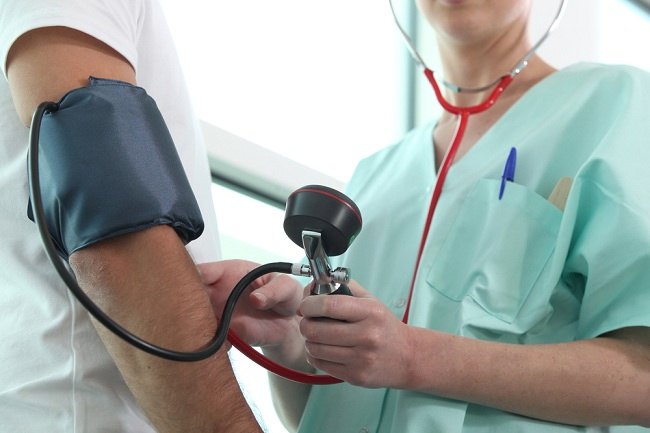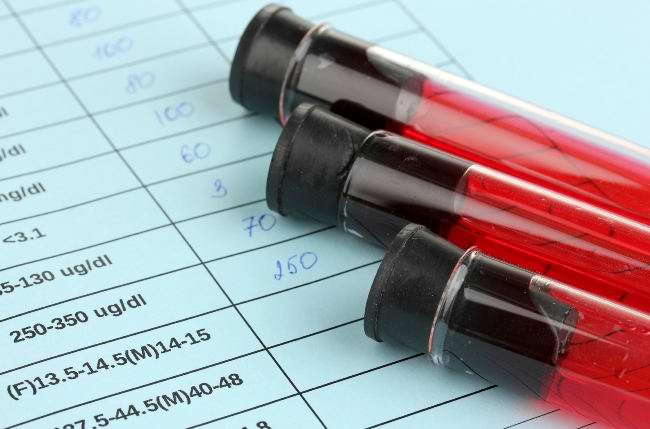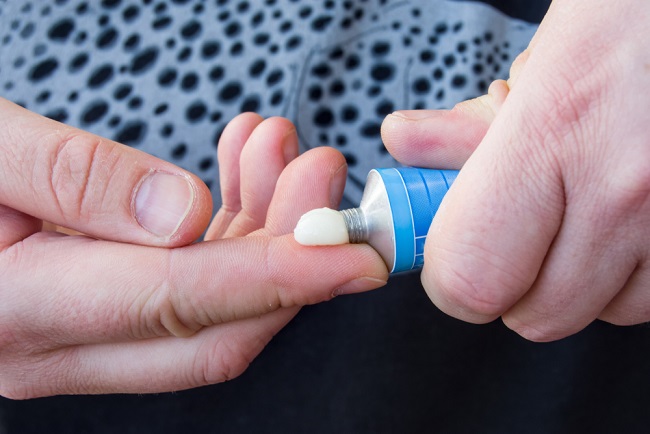A vascular surgeon is a specialist who treats disorders and diseases of the vascular system by means of surgery and medication. Vascular surgeons can perform operations on veins and arteries in various parts of the body, except for the brain and heart.
Vascular surgery is a branch of surgical medicine that studies the diagnosis, prevention, and treatment of diseases or disorders of the blood vessels. To get the title of specialist in vascular surgery (SpBV), a doctor must first complete his education as a general surgeon, then take a subspecialty education in vascular surgery for several years.

The scope of a vascular surgeon's duties is quite broad, ranging from providing consultations, diagnosing diseases, determining whether or not surgical procedures are necessary, to treating patients before, during, and after surgical procedures.
Diseases Treated by Vascular Surgeons
There are several diseases that can be treated by a vascular surgeon, including:
1. Abdominal aortic aneurysm
An abdominal aortic aneurysm is a dilation of the large blood vessel (aorta) in the abdomen. This condition can cause symptoms of abdominal pain that persist in the long term, and feel a pulse in the navel.
This condition is caused by several factors, such as atherosclerosis or blockage of blood vessels, high blood pressure, infection, injury, and genetic factors. If left untreated, an aneurysm can rupture and cause fatal heavy bleeding.
2. Peripheral artery disease
Peripheral artery disease is a disease that occurs when there is an obstruction to blood flow in the body's arteries. This disease most commonly occurs in the veins in the legs and feet, but can also occur in the arteries in the arms.
Peripheral artery disease can cause pain, tingling, numbness, and sores that don't heal in the arms or legs. If left untreated, this disease can get worse and make a limb affected by peripheral artery disease need to be amputated.
3. Carotid artery disease
Carotid artery disease is a disease that occurs when there is a blockage in the blood vessels in the neck due to a buildup of cholesterol. In the early stages, this disease is usually asymptomatic, but over time this disease can cause minor stroke symptoms that have the potential to become a stroke if not treated immediately.
4. Lymphedema
Lymphedema or lymphedema is swelling of the legs or arms caused by a blockage in the lymph vessels. Swollen limbs or arms due to lymphedema are often painful and difficult to move or stiff, making it difficult for the sufferer to move.
5. Diseases of the veins
There are many diseases or disorders that can interfere with the veins, including deep vein thrombosis (DVT), varicose veins, and thrombophlebitis. The diseases above can block the flow of venous blood in certain parts of the body, resulting in swelling and pain in those parts.
In addition to the diseases above, vascular surgeons can also treat several other diseases or disorders of the blood vessels, such as severe injuries or broken blood vessels, vasculitis, embolism, and tumors in the blood vessels.
Medical Actions Performed by Vascular Surgeons
In determining the diagnosis, the vascular surgeon will perform a physical examination and supporting examinations, such as:
- Blood test
- CT scan
- MRI
- Angiography or X-ray examination of arteries and veins
- Doppler ultrasound
After the diagnosis of the patient's disease is confirmed, the vascular surgeon will determine the treatment steps to treat the patient's disease.
Doctors can treat it by giving drugs, such as thrombolytic drugs to destroy blood clots, or with certain medical actions, such as:
Varicose veins
There are several medical procedures that can be performed to remove varicose veins that can be performed by vascular surgeons, namely laser surgery, venous ablation therapy, phlebectomy, and surgery on veins with endoscopy.
Usually this medical procedure is carried out if the varicose veins experienced by the patient are severe or do not improve with treatment.
Cimino Operation
Cimino's operation was carried out to facilitate access to the installation of a dialysis machine with the patient's blood vessels. The goal is to make the dialysis procedure run more smoothly.
Vascular surgeons often perform Cimino surgery on patients who require routine dialysis procedures, for example in patients with chronic kidney disease.
Aortic aneurysm surgery
To treat an aneurysm in the aortic vein, the vascular surgeon may perform surgery to cut and remove the dilated aortic artery, then the doctor will graft the new healthy blood vessel into the aortic vessel.
In addition to general surgery, vascular surgeons can also treat aortic aneurysms with minimally invasive surgical procedures.
This procedure is done by the doctor by making a small incision to attach the stent or ring in the aortic vessel affected by the aneurysm. Stent or ring It serves to strengthen the walls of the aortic vessels that are weak and keep them from rupturing.
Amputation
Amputation is the surgical removal of a limb, such as an arm, leg, finger, or hand. This procedure is usually necessary in cases of peripheral artery disease or severe diabetes that has caused tissue death or decay and infection in certain parts of the body.
Carotid endarterectomy
Carotid endarterectomy or carotid artery surgery is a procedure performed to remove plaque from the carotid arteries in the neck to prevent stroke. This operation is performed by removing the blockage in the carotid artery in the neck and repairing the blood vessel.
When Should You Consult a Vascular Surgeon?
Patients usually see a vascular surgeon after receiving a referral or recommendation from a general practitioner or other specialist.
In addition, patients are also advised to consult a vascular surgeon if they have complaints or symptoms in the blood and lymphatic system, for example:
- Dilated veins or varicose veins in the legs or feet that appear bluish purple in color and are painful
- Swollen legs and calves often cramp
- Sores on the legs or arms that don't heal
- Severe and sudden pain in the abdomen, chest, jaw, arms, or back
- Minor stroke symptoms, such as numbness or tingling on one side of the face or body
Consultation with a vascular surgeon also needs to be carried out by people who have risk factors for developing blood vessel disease, for example suffering from hypertension, obesity, high cholesterol, diabetes, or having a family history of blood vessel disease.
Things to Prepare Before Consulting a Vascular Surgeon
The following are things that need to be considered or prepared before seeing a vascular surgeon:
- Bring a note of the questions you want to ask along with a history of complaints or symptoms suffered.
- If there is, also bring the results of medical examinations that you have done previously, for example the results of blood tests, X-rays, or angiography.
- Ask your doctor clearly about your treatment and treatment options, including the success rate, risks, and estimated costs of the treatment.
In addition, there are several things you need to consider when choosing a vascular surgeon, including:
- Consider the location and distance of the hospital or doctor's office from home, considering that at any time your symptoms may require emergency medical attention.
- Ask for recommendations from several vascular surgeons, either from the general practitioner who examines you or from relatives. Make sure the doctor you choose is able to communicate well in explaining things related to your illness and the necessary treatment steps.
- Pay attention to the facilities and services of the hospital where the doctor practices. Choose a hospital with good, complete, and friendly services.
- If you want to take advantage of the insurance you have, make sure it can be used at the hospital you choose.
The thing to remember, do not delay the time to see a vascular surgeon if you experience complaints that point to vascular disease, even if it feels mild. If detected early and treated quickly, the disease you suffer from will be easier to treat and more likely to be cured.









